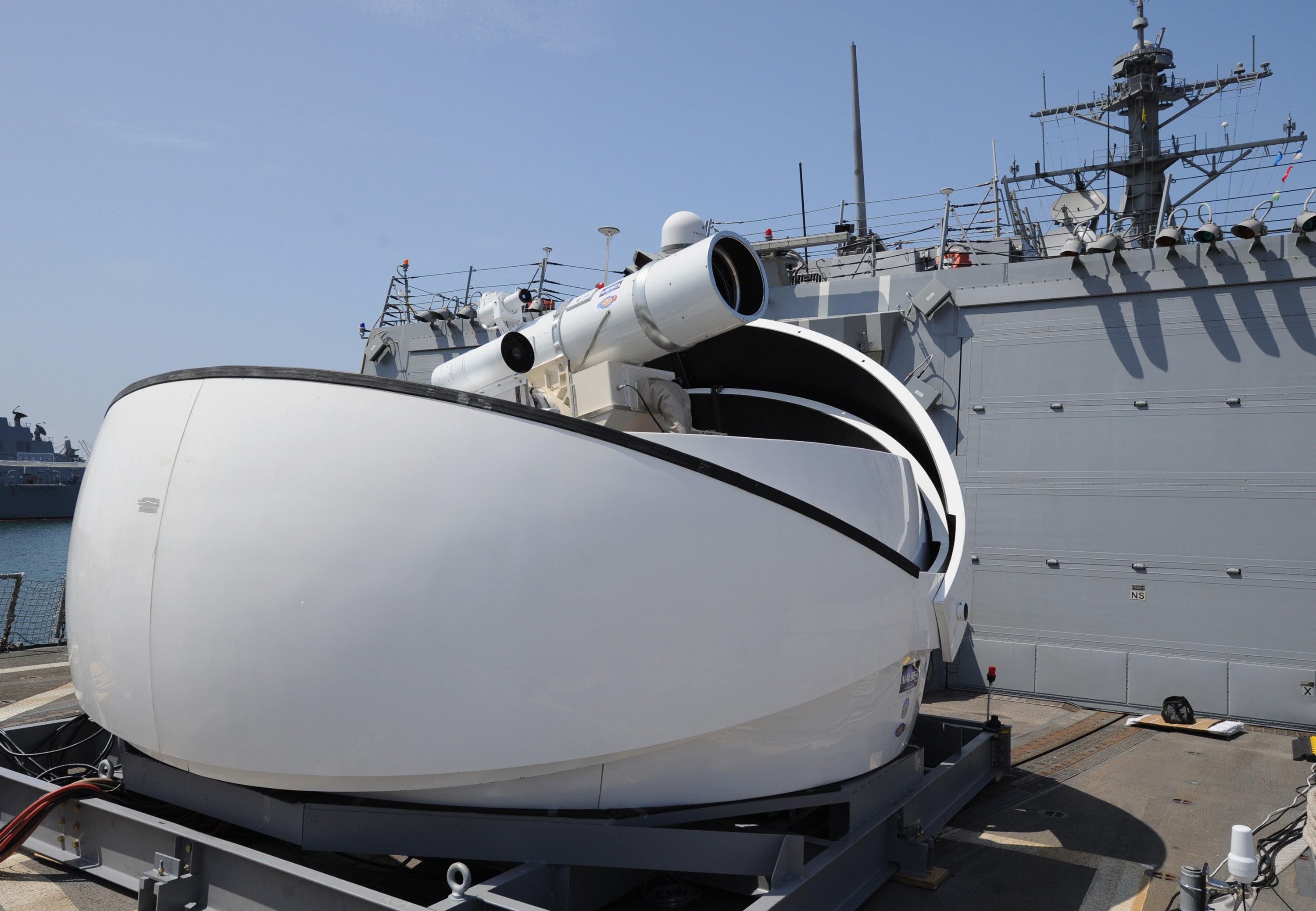Russia developing laser, electromagnetic and plasma weapons, Kremlin says
British and American militaries are also working on new battlefield technology

Russia’s defence ministry has said it is developing laser, electromagnetic and plasma weapons that can be fired at “hypersonic” speeds.
Russian deputy defence minister Yuri Borisov said the Kremlin was funding research into weapons that used “new materials”.
Work carried out jointly by the Russian Academy of Sciences and the defence ministry was likely to herald a “serious breakthrough in the field of laser issues [and] electromagnetic weapons", Mr Borisov said.
"Coming next are hypersonic weapons, which require the use of principally new materials and control systems that operate in a completely different medium, in plasma,” Russian news agency Tass quoted him as saying.
Hypersonic speeds are those which exceed five times the speed of sound, equivalent to around 3,800mph.
The average speed of a conventional bullet is closer to 1,700mph.
The announcement came as the new American President revealed the basic outline of his defence policy, which includes a pledge not to “allow other nations to surpass our military capability”.
Military engineers have developed their own versions of alternative weapons for the US army.
The US Navy is already using a 30-kilowatt laser weapon that can shoot drones out of the sky.

It was tested on USS Ponce in the Gulf in 2014 and was used to target weapons systems mounted onto fast moving boats.
Britain is also stepping up efforts to develop next-generation weaponry.
Earlier this month the Ministry of Defence announced it was spending £30 million on a prototype laser weapon.
Defence minister Harriet Baldwin described the project as “truly ground-breaking”.
Join our commenting forum
Join thought-provoking conversations, follow other Independent readers and see their replies
Comments
Bookmark popover
Removed from bookmarks